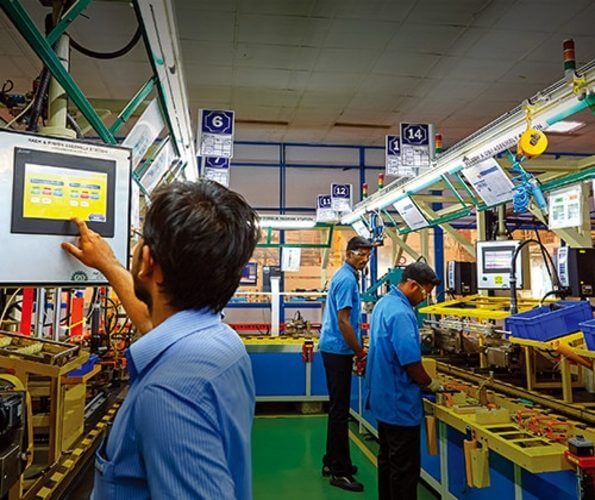All You Need to Know about Industrial AutomationPosted by Mitsubishi Electric on September 2nd, 2019 Industrial automation is a method of operating machines and other industrial equipment pieces. This is done with the help of a digital logical programming to reduce human intervention in decision making and limit the manual command process. Initially, the implementation of automation in a production process was majorly focused on substituting manual work with independent pre-set machinery. For this, independent machines were coordinated by a human supervisor in order to ensure a smooth production procedure. But with time, technology has progressed by leaps and bounds which, in turn, has contributed to better microprocessors, analog and digital control systems, and PLCs (Programmable Logic Controllers), and various sensors. This makes it easy to synchronize independent machines and processes to help achieve complete industrial automation.
With the ever-growing industrial economy, procedures and strategies for industrial automation have also evolved. The key motives to implement industrial automation are:
While these are some of the main motives that industrial automation focuses on, reducing environmental pollution is one of the secondary motives of using automation in an industrial production process. Advantages of using industrial automation systems Bringing in automation in the industrial sector can have a myriad of benefits. Some of them are listed below: Reduction in Manual Work Since the industrial sector involves tedious physical work, automation can effectively reduce manual work and utilize human resources for much better tasks. Also, human workers can now avoid working in an unhealthy environment where they are exposed to pollution, extreme temperatures, intoxicating elements, and radioactive substances. Better Execution of Task Each industry is prone to human errors, but with automation, errors can be reduced to a considerable level which can also limit unnecessary expenditures. Efficient and Cost-Effective With the introduction of automation in industries, production processes can be much faster now. Also, the cost of production will be reduced which can result in enhanced profits. Maintains Uniformity With a pre-set logic, machines can easily maintain uniformity and consistency. Also, regular quality checks will be much easier with the help of automation. Growth and Expansion With all the aforementioned benefits of industrial automation, businesses implementing it will have a positive impact in terms of saving costs, operational efficiency, market value, and goodwill. Levels involved in the Industrial Automation Process There are three major levels of a typical industrial automation application. These are:
Types of Industrial Automation Systems Industrial automation systems can be categorized into four types. The production procedure majorly depends on the type of industrial automation. The different types of industrial automation systems are:
These automation systems are at the core of the industrial automation projects that are contributing to the betterment of the sector. Like it? Share it!More by this author |


 Key Motives
Key Motives